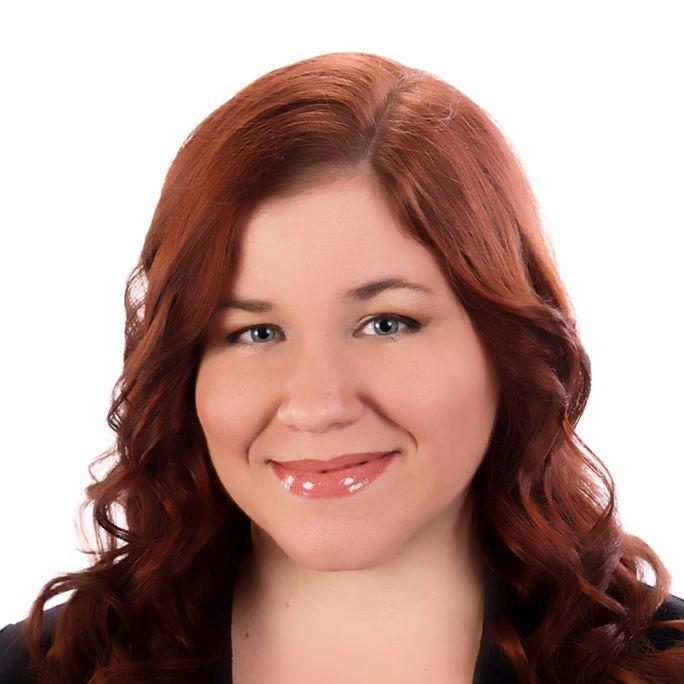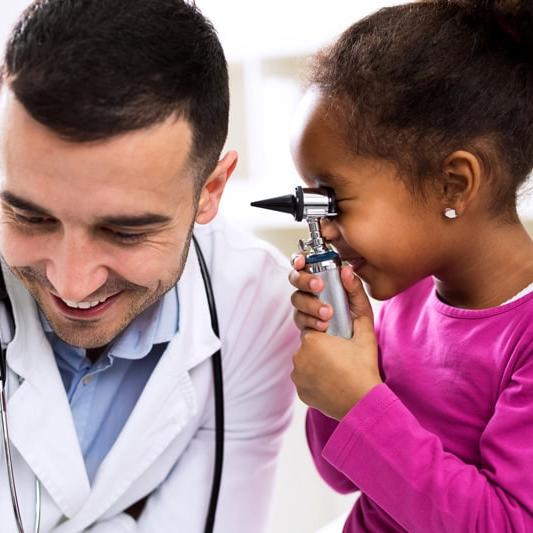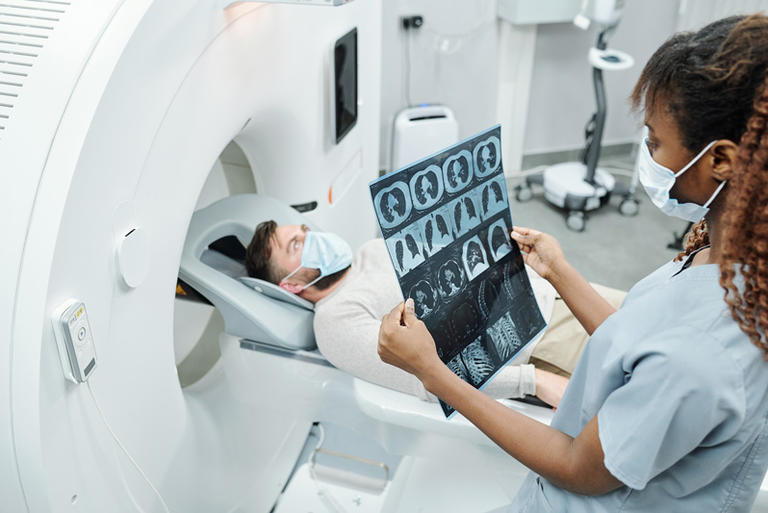They may help an infant with abdominal distension, the infant’s mother with diabetes, and the infant’s grandfather with cardiovascular disease—all in consecutive examinations. Doctors of family medicine also need excellent relational skills as they may care for members of a family for many years, modifying care and the approach to care as patients grow and age.
If you are considering a career in family medicine, ask yourself these questions:
- Are you interested in providing medical care for entire families?
- Do you want to treat babies, kids, adults, and seniors all in the same day?
- Are you ready to learn a wide variety of medical skills?
- Can you assess a completely new set of symptoms for every patient?
- Do you want long-lasting relationships with patients?
If your answer to any of these questions is “yes,” then family medicine may be the career path for you.
What Does a Family Medicine Physician Do?
You may be wondering: What is a family physician? What does a family physician do? Family medicine is sometimes confused with internal medicine. Both internal and family medicine physicians provide primary care, but internists typically only treat adults.
Family medicine physicians are skilled at general internal medicine as well as pediatric, adolescent, and geriatric medicines, and they tailor their clinical services to individual patients and situations. Family physicians, also called family practice doctors, may also concentrate more on preventive outpatient care—performing diagnostic tests, medical check-ups, screenings, or wellness visits—while internal medicine doctors deal more with curative inpatient and outpatient care.
Doctors of family medicine are important because they help patients navigate the health care system, recommending tests and treatments and referring patients to specialists when needed. Family doctors understand community and social determinants of health, particularly as children grow into adolescence and young adulthood, as well as the impact a patient’s health may have on other members of the patient’s family.
People often specifically choose to see family practice doctors so every member of the family can see the same doctor, allowing the creation of enduring and trusting relationships. Through familiarity with their patients—both medical histories and situations at home or at work—family doctors may be quicker to identify health problems or irregularities. Primary responsibilities of family doctors include:
- Accepting patients of all ages and genders
- Educating patients on everyday health
- Keeping health records and medical histories
- Maintaining good relationships with patients
- Managing common complaints as well as chronic illnesses
- Ordering and interpreting laboratory tests
- Performing health screenings, immunizations, and physical exams
- Performing various outpatient medical procedures
- Prescribing medications
- Providing primary care for all health issues
- Spotting early signs of emerging conditions or unusual symptoms
Family doctors may also assess weight and nutrition issues by recommending diet or exercise changes, counsel patients on family planning, and perform fertility testing. Family physicians may also help patients with emotional issues such as anger, grief, or stress, or refer them to mental health specialists. Family doctors may also be skilled in such areas as biostats, critical review, faculty development, grant writing, epidemiology, and research methodology.
HOW TO BECOME A FAMILY MEDICINE DOCTOR
To become a family doctor, you must first become a physician by graduating from an accredited medical school*—such as Ross University School of Medicine (RUSM). The steps to a medical degree at RUSM, which is located on the Caribbean island of Barbados, are the same as at United States-based schools: two years of medical science classes and two years of hands-on clinical training. For RUSM students, the medical sciences curriculum is completed at the Barbados campus; the clinical training can be completed at affiliated teaching hospitals in the United States.
During clinical training, RUSM students complete core rotations in internal medicine, surgery, pediatrics, family medicine, obstetrics/ gynecology, and psychiatry. Each individual student, then, selects from among 40 specialty elective clerkships to fulfill their remaining clinical requirements.
During the fourth and final year of medical school, students prepare for the next step in their medical education: residency. At RUSM, the Office of Career Advisement (OCA) helps students determine which residency specialty—such as family medicine—suits them best. The OCA then helps students negotiate the National Resident Matching Program® (NRMP®)—a placement system which medical students who wish to obtain licensure in the United States use to “match” with a medical residency. Residencies are required to become a licensed physician, and they last from three to eight years. A residency in family medicine is typically three years.
In 2021, RUSM had a first-time residency attainment rate of 92 percent for 2020-2021 graduates, a match percentage rate comparable with the overall match rate (93 percent) for medical schools in the United States. In recent years, RUSM MD’s have matched with hundreds of family medicine residencies at hospitals across the United States. These hospitals include IU Health Methodist Hospital in Indiana; Robert Wood Johnson University Hospital in New Jersey; St. Francis Hospital in Delaware; and UC San Diego Medical Center in California.
A family medicine residency may be combined with such specialties as disaster, emergency, or preventive medicine. Combined residencies are usually four years in length, and after successful completion of the residency, doctors may be “double-boarded”—certified by the American Board of Family Medicine (ABFM) as well as the specialty board of their other medical discipline.
After residency, qualified candidates are eligible to become certified by the ABFM, and they may apply for membership in the American Academy of Family Physicians. Doctors who want to subspecialize in a specific area of family medicine must take an additional one to three years of fellowship training. Subspecialties of family medicine include:
- Addiction medicine
- Adolescent medicine
- Clinical informatics
- Geriatric medicine
- Hospice and palliative medicine
- Hospital medicine
- Integrative medicine
- International medicine/ global health
- Maternal/ women’s health
- Pain medicine
- Preventive medicine
- Rural health
- Sleep medicine
- Sports medicine
- Urgent care
MEET A FAMILY PHYSICIAN
Sheryl Recinos, MD, a 2014 RUSM graduate, is a family medicine hospitalist at Horizon Multicare Group in Lancaster, California. We asked Dr. Recinos to describe the role of a family physician.
Q: Why did you decide to go into family medicine?
A: I love the breadth of knowledge that family medicine encompasses, and I enjoy the flexibility of being able to work with children, adults, and elderly patients. My clinicals taught me quite rapidly that I work well with all ages, even though at the time I was certain I wanted to focus on pediatrics. I kept having relevant patient encounters with people who hadn't been heard in medicine, primarily adults with a traumatic history, and I realized that I needed to expand my initial goal so that I could learn how to care for entire families. Additionally, I knew that I wanted to be able to work with all populations because I enjoy providing medical care overseas, and family medicine felt like the right fit to have the right level of training. I have worked with a group of premed students that goes down to a small free clinic in Mexico for many years, and FM trained me well for this work. I was fortunate to be able to go back to Dominica after Hurricane Maria to volunteer at Princess Margaret Hospital, and my broad training served me well in that capacity. Looking back, I made the best possible choice for my training.
Q: Any advice to medical students considering the specialty?
A: If you find yourself going through your core rotations (FM, IM, Peds, OB, Psych) and you’re feeling like "I enjoy this, but..." and you get to surgery and think "I like them awake, but I enjoy procedures," then you may need to seriously consider family medicine. I have colleagues in FM who work in many different capacities; outpatient primary care, inpatient work (like me), ER, urgent care, FM with OB, and in many other settings. Family medicine is an amazing specialty that is crucial for medicine, and if you want to be on the frontline making the diagnosis and helping patients access the care they need, it's a great choice. I can't wait to tell you, "Welcome to the Family."
Q: What’s the most rewarding part of your job?
A: For me, I've always found the greatest joy when I connect with patients that haven't always had the best experience in healthcare. I went into medicine to work with underserved patients after having so many encounters where I felt like my voice was unheard. When I have meaningful visits with my patients and they feel like their needs are being addressed, I know I'm right where I'm supposed to be.
If you want to become a doctor, and a career in family medicine appeals to you, learn more about the RUSM MD Program and investigate the Office of Career Advisement. When you’re ready, take the next step on your path to a specialization in family medicine: apply for admission to Ross University School of Medicine.
A Career in Family Medicine
Family medicine physicians may work in a clinic, government agency, hospital, medical office, nursing home, public health department, or university, and many are in group or private practice. Unlike most medical specialists who concentrate in cities, family physicians are evenly spread among all populations.
In many underserved areas—particularly among rural populations—family physicians may be the only doctors available. Like all doctors, however, family physicians dedicate time to meetings and administration tasks, consulting with specialists, studying, and teaching. Most family medicine physicians work between 40 and 50 hours per week, and they are also often on-call—available for consultation at night or on days off.
Because family medicine physicians are needed for a wide variety of health and wellness issues for entire families, they can have a tremendous impact on the individual lives of patients as well as overall community health.
Demand for Family Medicine Physicians
In 2019, Doximity, a trusted professional network for clinicians, issued a report on physician employment that listed family medicine as the most in-demand medical specialty in the United States. This is not a new development: multiple surveys have put family medicine at the top of the demand charts for more than a decade.
As populations increase and people age, the demand for family doctors—and doctors in general—continues to grow. Every year, there are slightly more family physician jobs available than there are doctors to fill them.
And like doctors in all medical fields—family medicine physicians are an aging population. As those doctors retire, the shortage of family medicine specialists increases. In July 2020, an Association of American Medical Colleges report showed that one third of U.S. physicians are age 60 or older, and well over half—57 percent—are over 50 years old.
The Ross University School of Medicine has a strong history of placing graduating students in family medicine and specialist residencies. In 2019 and 2020, 95 percent of RUSM graduates were placed in residencies. Take the next step on your path to a specialization in family medicine: apply for admission to RUSM.
Related resources:





